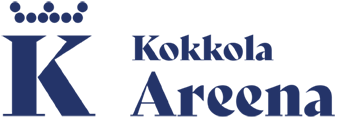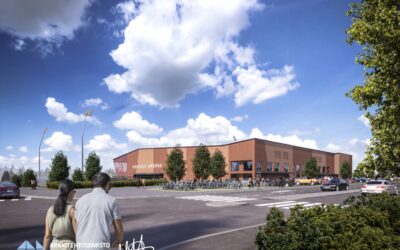Kokkola Sports Park Alliance began its work at the end of March 2022. The first phase will see the design of the content and implementation of the sports park complex. The target cost and implementation plan, including schedule, will also be determined. Based on this work, the decision will be taken to proceed to the implementation phase. Jaakko Linnolahti, head of procurement, comes from YIT, Vaasa.
What is your role in the Kokkola Sports Park Alliance?
I’m head of procurement in the team and also support project management, especially in tasks related to information management and planning control. On top of this, I’m also a member of the project team.
What makes up your working days?
At this stage of the project, there are relatively few procurements and so I participate with the rest of the team in project development, verifying preliminary data and commenting on the various alternatives. I’ve also been active in developing the project information management process, which largely guides how we act in the project and how we process information and various documents. In phase 1 beginning in the autumn, we will put the finishing touches to the project procurement strategy and draw up a procurement plan, which in turn will drive the planning schedule among other things.
How do you like working in the alliance?
I like the alliance way of working, it’s a very collaborative form of contracting. We all sit around the same table and we share the same goals. I like a model where designers and builders are tendered as one team and this means we also get to determine the way of working from the very first day – partly already at the tendering stage. Because we do many things together, it’s important to spend time on slightly softer things such as the team spirit in order to foster teamwork.
How does the alliance model differ from your earlier projects?
We operate in the Big Room, where all key persons are present at least weekly. We spend a bit more time on work in the development phase of the project and aim to ensure that the rest of the project reaches the goal without any hitches. In a traditional construction project, each contractor focuses more on their own role and their own interests are monitored more. In the alliance model, everyone is on the same page and the focus is on taking the project forward. In alliance projects, plans are also developed in stages – we make plans according to the situation at the time, which in turn significantly shortens the entire project. In other projects, where for example the exact price has to be quoted, the customer has to order all the plans from designers before putting the entire contract out to tender.
Have there been any challenges?
Of course, but in the big picture, work has got off to a great start and it has to be said that in the Big Room, we’ve had an amazing sense of getting things done. Development phase 0 has now been ongoing, which means that we have had to catch up with the project goals set by the client in a relatively short time. This involves the various requirements of different users such as sports clubs and event organisers, which means there has been quite a lot of information and needs to consider. We’ve had to put together various alternatives to a tight schedule, after which we’ve considered which of them we want to submit to decision-makers. Of course, the budget in the background also drives what we do. Significant recent rises in building costs also pose their own challenge.
How do you recover from long working weeks?
I recover by doing all kinds of exercise and this is very important to me. I often go and exercise before the working day, with a workout in the gym or some golf. I’ve also played basketball my whole life. In addition, doing things at home with the children and everyday family life nicely help me to relax from the stresses of work.
And finally, tell us something about the company you represent
I represent YIT, which is the largest construction company in Finland and can in many ways be said to also be a leader. At the moment our strategy is very much about developing cities and living environments, and the environment and responsibility are also important parts of our strategy. I like working for YIT and have been given much responsibility during my career. I want to continue at YIT because it means I get to be involved in interesting and significant construction projects with the best professionals in the business. That’s what drives me and makes me happy to go to work each morning.


